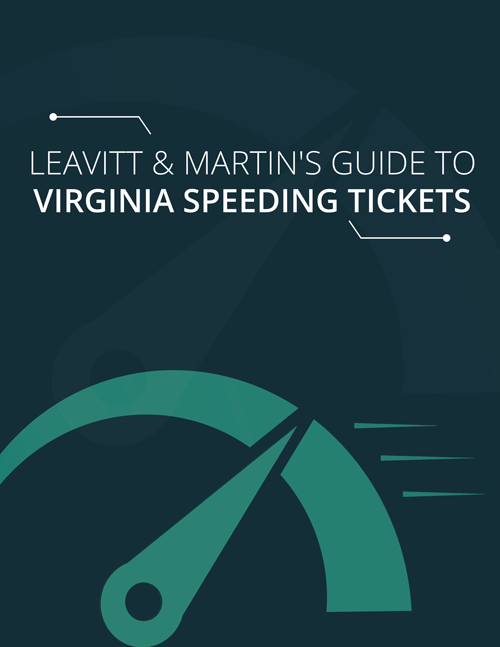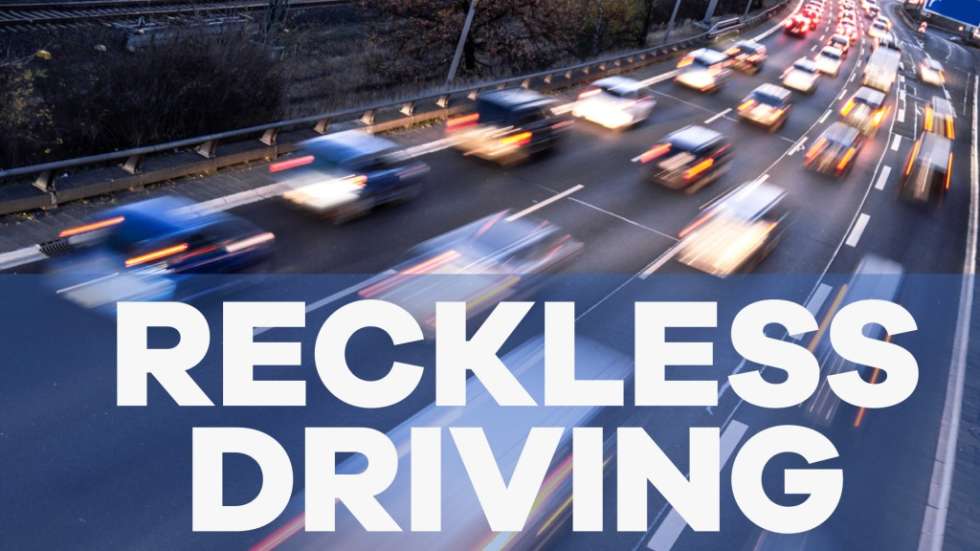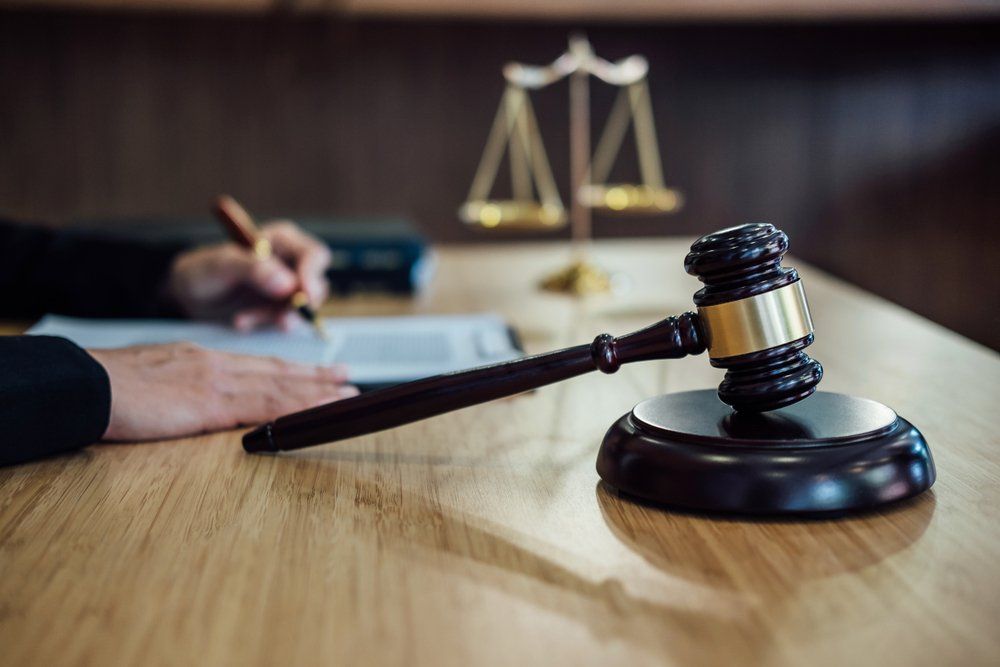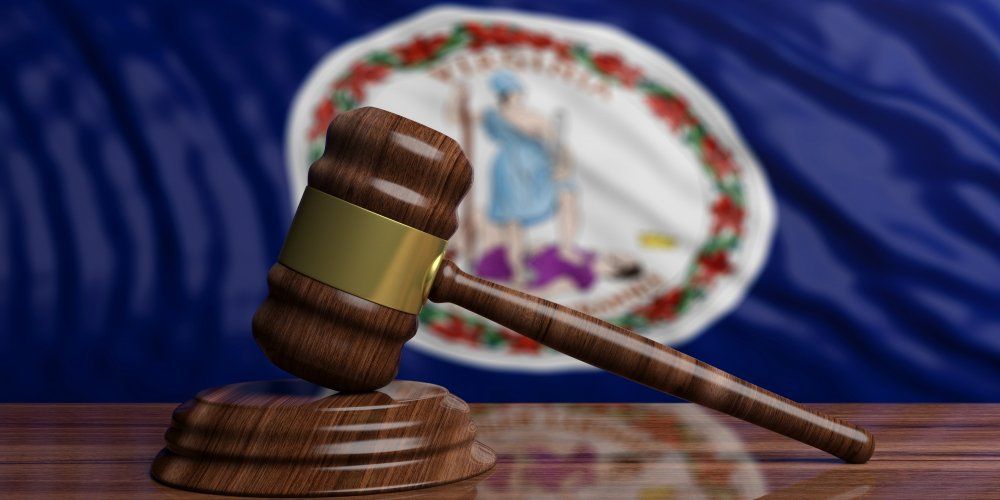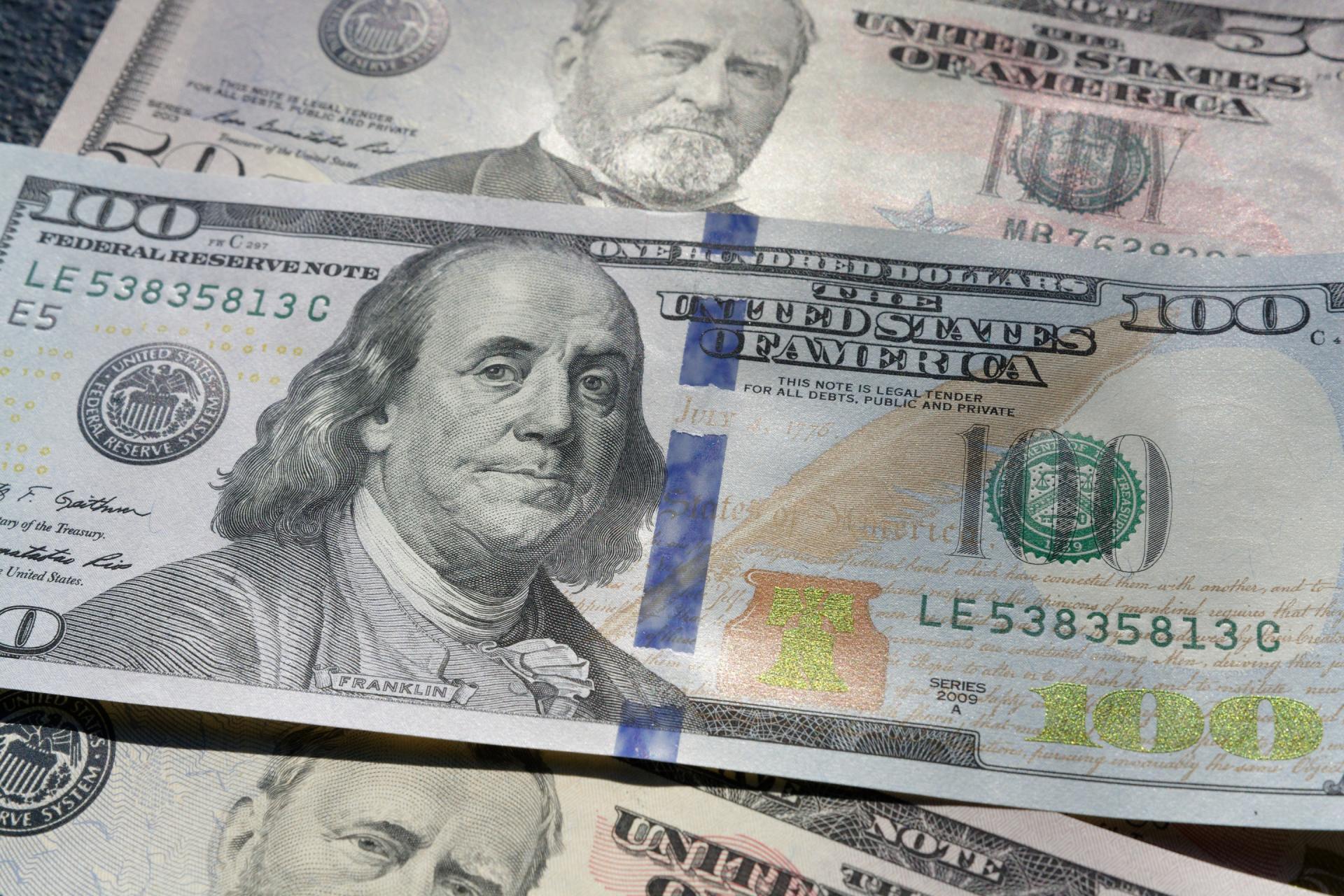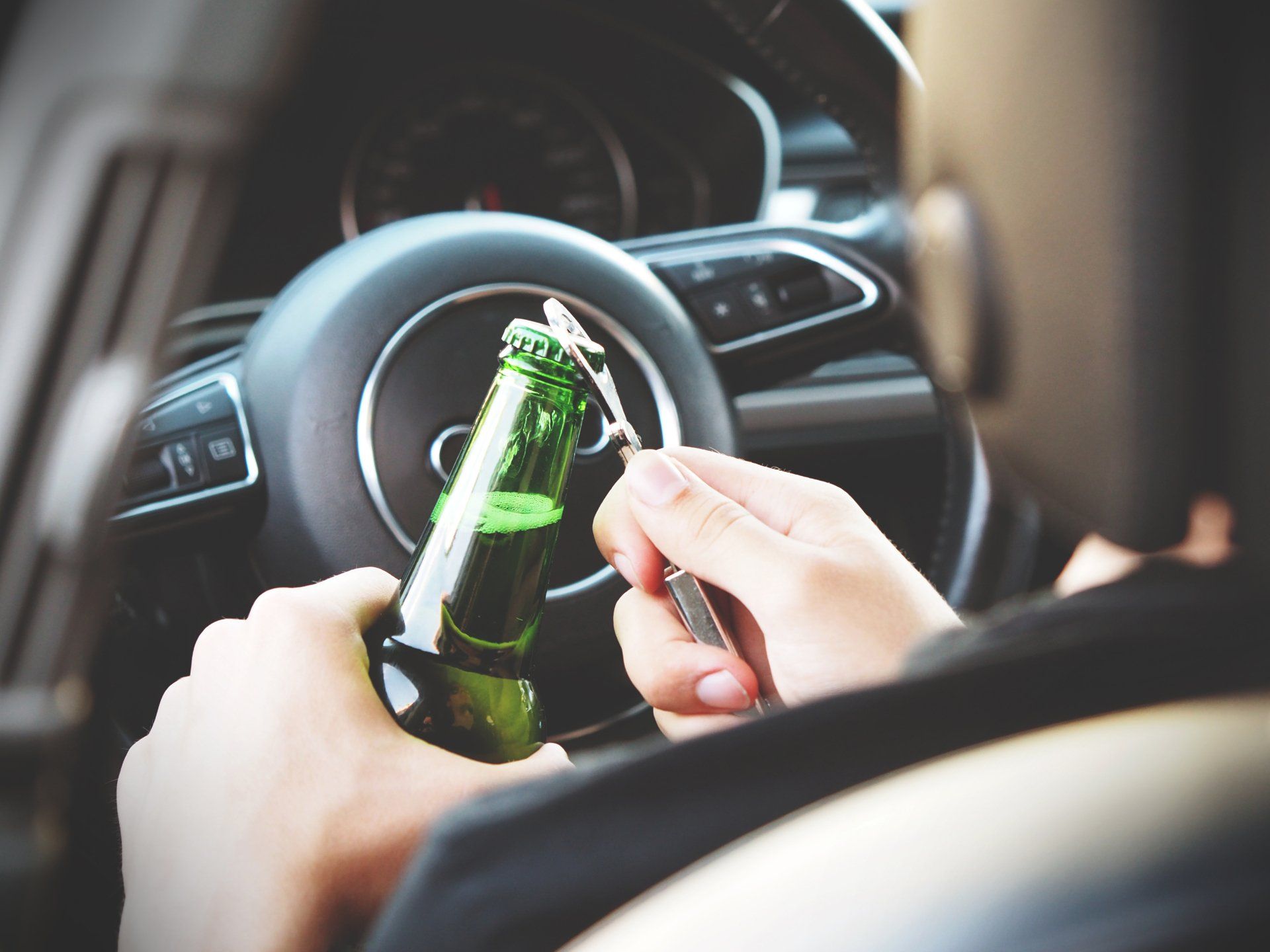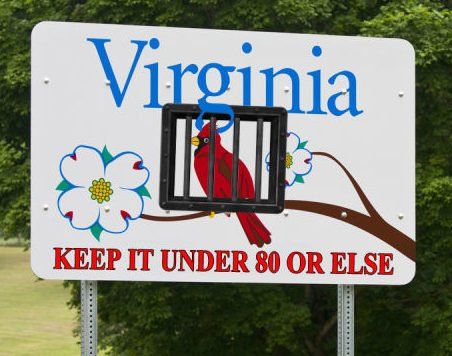What is the Penalty for Virginia Reckless Driving?
Is Virginia Reckless Driving a Misdemeanor or a Felony? Can I Got to Jail for Speeding? Do I need a Virginia reckless driving lawyer or speeding lawyer? At Leavitt & Martin, we specialize in traffic work and we have handled thousands of reckless driving cases. We are Virginia traffic lawyers. I am familiar with Virginia[...] The post What is the Penalty for Virginia Reckless Driving? appeared first on Leavitt & Martin.
Is Virginia Reckless Driving a Misdemeanor or a Felony?
Can I Got to Jail for Speeding? Do I need a Virginia reckless driving lawyer or speeding lawyer?
At Leavitt & Martin , we specialize in traffic work and we have handled thousands of reckless driving cases. We are Virginia traffic lawyers. I am familiar with Virginia Reckless Driving and its consequences. I copied all of the Virginia reckless driving laws in their entirety. As you can see, there are a number of reckless driving laws. There is an additional charge called “ Improper Driving ” and I will discuss that in more depth as well. In fact, there are at least 14 ways to drive recklessly in Virginia.
For now, I am going to cover the MAIN reckless driving laws. These are the laws that probably 99 percent of people are charged with. While Virginia reckless driving can be a felony it is ALMOST ALWAYS a misdemeanor.
Virginia reckless driving first offense and second offense both carry the same potential range of punishment, although the driving history often plays a role in the case. Also, out of state drivers can face additional consequences depending on the state they live in.
Virginia Reckless Driving by Speed, § 46.2-862. Exceeding speed limit.
This is the Most Commonly Written Reckless Driving Charge in Virginia
There are two ways to violate this law, and if you violate EITHER section you are technically guilty:
- Driving IN EXCESS of 80 MPH: If you drive 81 mph in ANY speed zone it is technically reckless driving , even in a 70 mph zone. Therefore, you can get convicted of a misdemeanor for driving 11 mph over the limit. Note that 80 MPH is NOT reckless , unless you were in a 60 mph zone.
- Driving 20 mph or MORE over the speed limit, regardless of the speed limit: Therefore 80 mph in a 60, 55 mph in a 35, etc are all reckless driving.
Penalty for Virginia Reckless Driving
Reckless driving is a charge where the consequences can be far reaching and unpredictable. The reason for this is that there are both DIRECT consequences, and INDIRECT consequences. Direct consequences are easy to figure out to the extent that there is a range of punishment. The judge may not exceed that range of punishment. And many cases are predictable.
However, reckless driving has many indirect consequences that may very well vary from state to state and individual to individual. These are much more difficult to foresee.
Direct Consequences of Virginia Reckless Driving :
Keep in mind that your case may very well qualify for a reduction or a dismissal but this guide right now deals with the consequences if you are found guilty. Reckless driving by speed in Virginia is classified as a class 1 criminal misdemeanor. That means that if you are found guilty , the following will happen:
- you will face a jail sentence of 0-12 months
- you will face a fine of $0-2500
- you face the possibility of a license suspension up to six months
- you will have a permanent criminal record that never goes away and can never be expunged
Again, most of my clients have their charges reduced or dismissed but I am providing the above information to answer the question of what happens if you are found guilty.
Indirect Consequences of a Conviction for Virginia Reckless Driving:
In addition to the above direct consequences, you may face some or all of the following indirect consequences:
- Insurance : your insurance company may double or triple your insurance rates or worse, they may drop you from coverage
- Employment : your company may fire you, withdraw a job offer, or otherwise penalize you. I have seen military careers derailed (issues with getting a top secret security clearance with a misdemeanor) and I have had people call me TEN YEARS after a conviction and tell me the misdemeanor is showing up on a background check and a job offer was withdrawn.
- School : students, student athletes, and scholarship students may face additional issues because of the misdemeanors. My cousin is a college basketball coach and deals with these issues all the time. His school has a ZERO TOLERANCE policy with misdemeanors. In addition, you may have issues applying for GRADUATE SCHOOL with a misdemeanor.
- Commercial drivers : Insurance companies and any company that hires drivers has a big issue with RECKLESS DRIVING. You can easily lose your job and become next to impossible to employ if you have a reckless driving charge.
- Out of state drivers : Many states (including Connecticut, Georgia, Michigan, New Hampshire, etc) may SUSPEND your license in ADDITION to any license suspension Virginia imposes. We frequently get hired when people get notice of suspension letters in the mail. Sometimes we can help and sometimes it is too late. Even when we can help, our fee is a lot higher due to the nature of trying to REOPEN a case that was already heard in court.
- Immigration issues : If you travel out of the country, or you are in the United States on a visa, work permit, Green Card, or you are a permanent resident then a misdemeanor can possibly impact you.
Virginia Reckless Driving: What Happens if I Get an Out of State Reckless Driving Charge? Will it Follow Me to My Home State?
There are really two issues here. One deals with the criminal record, and the other deals with the points/insurance/potential license suspension, etc.
-
Issue with Criminal Record for Virginia Reckless Driving
Because Virginia classifies this as a criminal misdemeanor, you will have a permanent criminal record that never goes away and can never be expunged IF YOU ARE FOUND GUILTY OF RECKLESS DRIVING BY SPEED IN VIRGINIA.
Virginia decides what is a misdemeanor and what is not. So if you live in a different state where it would not be a misdemeanor then it does not matter. Since Virginia treats it as a misdemeanor, you get a criminal record across all 50 states if you are convicted. If you are asked on a background check if you have a misdemeanor and you put NO, then be forewarned that it can show up as a misdemeanor and you may lose out on a job because you did not answer truthfully.
Example: Marijuana possession is legal in some cases in Colorado. If a Colorado resident goes to Virginia and possesses Marijuana it is a misdemeanor charge and if they get convicted they will have a permanent criminal record even though it is legal in their home state.
When you visit or enter a state, you are subject to their laws and ignorance of the law is not a defense.
2. Out of State Issue, Do the Virginia Reckless Driving Points Follow Me? How Will a Conviction Impact Me?
As noted above, the criminal record does follow you to all 50 states and it is permanent and can never be expunged. The points and the license suspension is different if you are out of state.
- Your Consequences May be MORE SEVERE
Many states have an automatic suspension if you get convicted in any state for Reckless Driving. I have been retained after the fact by residents of Connecticut, Michigan, New Hampshire, Washington D.C., Washington state, and others where the conviction for reckless driving was reported and they faced an AUTOMATIC suspension.
2. How the Process Works for Out of State Drivers
You get a ticket, and you may or may not realize it’s for reckless driving. Sometimes the officers write “RD” on the ticket and many people think that stands for radar when it means reckless driving. So you don’t pay a lot of attention. The speed may have been fairly low, 81 mph up to 89 mph and maybe the officer tells you to just call a number and pay the ticket. So you call the number, you pay the ticket, and then BAM, you get a letter in the mail from your home state saying that YOUR LICENSE WILL BE SUSPENDED.
So here is how the process actually works:
- you are found guilty of reckless driving in a court of law in Virginia
- after 10-30 days from the date of conviction (usually the date on your ticket) the court will notify the Virginia DMV of the conviction
- not long after your HOME state’s DMV will see the conviction for reckless driving
- the DMV’s from all 50 states and Washington DC communicate with each other
- there is a uniform RECKLESS DRIVING code that DMV administrators see
- that code is what gets transmitted from Virginia to all 50 states
- your HOME state then independently decides what to do
- certain states AUTOMATICALLY suspend your license for reckless driving
- if your state is one of those states, you will get a letter from the dmv notifying you about the suspension
- YOU MAY BE ABLE TO FIX IT AND AVOID THE SUSPENSION but it depends on WHERE you got the ticket and WHEN the conviction happened
- Even if your home state does not suspend your license, they will determine the number of points you get for reckless driving and how long those points stay on your record
- in my experience reckless driving in all states is severe
- Your insurance company at some later date will catch wind of the conviction and will independently determine what to do
- in my experience on reckless driving they may DOUBLE, TRIPLE, or DROP you from coverage
- they may only increase your rates and not triple them, but it will be up to your individual insurance company
Virginia Reckless Driving: What Should I Expect to Happen?
Answer: It depends, it really does. But let me give some helpful guidance.
Every judge is different, but here are some general guidelines, by far the three biggest factors for what will happen in your case are:
- WHERE YOU GOT YOUR TICKET: this determines what judge will hear your case and whether the prosecutors get involved or not
- WHAT SPEED YOU WERE GOING: every judge has their own framework for how they treat reckless driving by speed but there is often a significant difference between driving 81 mph in a 70 versus driving 105 mph in a 70
- WHAT YOUR DRIVING RECORD LOOKS LIKE: judges and prosecutors will consider your prior driving history
- they will consider any prior offense that shows up on your driving record
- serious prior offenses carry more weight such as
- DUI convictions
- reckless driving convictions
- hit and run convictions
- speeding 20 mph or more over the limit
- while prior moving violations carry more weight, reduced speeding tickets carry the same weight as a prior speeding ticket
- most judges and prosecutors will view “defective equipment” as a reduced speeding ticket when viewing the driving record
Your outcome will usually be driven by where you got the ticket, the speed you were cited for going, and what your driving record looks like. There is no excuse for speeding that the judge will accept as a legal defense usually. If you sit through traffic court you will hear the following excuses:
- I had to use the bathroom
- I was on my way to a funeral
- There was a hurricane and I was evacuating
- I had my cruise control on (some lower speed) and I did not realize I was going that fast
None of these reasons is a legal defense to speeding or reckless driving and the judges typically have a response because they hear them so frequently. Outside of a medical emergency that you can document there really is not a legal excuse for speeding or reckless driving.
As a general rule, the lower the speed your charge is for and the better driving record you have the better your chances are of getting a good result. That result may look like a dismissal or it may look like a reduction depending on where you got the ticket.
What Are Legal Defenses to Virginia Reckless Driving by Speed or Speeding?
At Leavitt & Martin , we have entered a plea of NOT GUILTY and won many cases for speeding and reckless driving by speed after a trial. Here are the most common legal defenses:
- OFFICER’S RADAR/LIDAR CALIBRATION IS NOT PROPER
- Officer clocks the wrong vehicle, or does not clock the correct vehicle
- Officer makes a mistake on the ticket itself that results in a DISMISSAL
Virginia Reckless Driving Calibration issues: § 46.2-882. Determining speed with various devices; certificate as to accuracy of device; arrest without warrant.
Calibration issues deal with the officer’s calibration of his/her radar or lidar. Believe it or not, but many officers do not know the law regarding radar/lidar calibration. There is really good case law on what is required to mount a good defense in this area and MOST attorneys don’t know it. There are very few lawyers who have successfully tried these issues.
Example: I was in court and my client had a TERRIBLE driving record. The judge would never help nor would the prosecutor. In other words, my client was getting convicted 100 percent of the time UNLESS I could find a legal defense. I asked the Virginia State Police trooper to see his calibration certificate, pursuant to 46.2-882.
As he looked for it, he (sarcastically) told me how I was a good lawyer because most lawyers don’t check them. So I reviewed it and I found a legal defense. I knew he could not fix it so I told him I had found an issue and then I left him there. I noticed him scrutinizing the calibration report but he could not find the issue.
I entered a plea of NOT GUILTY. After a trial, I won the case. The judge agreed with me and dismissed the case. I have done this many times and I have found that prosecutors, officers, and even judges are not familiar with this law. So this legal defense is the most common.
Virginia Reckless Driving: The Officer Clocks the Wrong Vehicle
I have also won cases where the officer does not clock the correct vehicle. Radar operates in such a way that it does not pinpoint an exact vehicle. And so the issue becomes, how does the officer know the vehicle that is breaking the law?
Sometimes the officer will pull over two vehicles that both appear to be driving the same speed. However, if the officer does not individually clock each vehicle then the charge must be dismissed. And they do this pretty frequently. For this defense you need an honest police officer to admit they did not actually clock the vehicle and I have won cases this way.
Virginia Reckless Driving: The Officer Makes a Mistake on the Ticket
Not every error on a ticket will result in a dismissal. For instance, if the officer spells your name wrong or if the officer gets the address wrong. These are common mistakes.
However, some mistakes WILL result in a dismissal.
Example 1: I entered a plea of NOT GUILTY for a client where the officer wrote down the offense date on the ticket but it did not match up with the correct DAY OF THE WEEK on the ticket. In other words, one of the two HAD TO BE WRONG. As a result there was no valid offense date. The officer was honest and could not remember when the ticket was written and the judge dismissed the case.
Example 2: The officer pulled over my client and gave my client the ticket. However, the officer wrote the name of the person whose vehicle it was registered in when filling out the ticket but used my client’s license number when he completed the ticket. Therefore essentially two different people were on the ticket. The judge had to dismiss the case because the officer could not identify who the actual driver was in court.
Other Common Reckless Driving in Virginia; Reckless Driving General
“Irrespective of the maximum speeds permitted by law, any person who drives a vehicle on any highway recklessly or at a speed or in a manner so as to endanger the life, limb, or property of any person shall be guilty of reckless driving.”
This law is the general rule against reckless driving. You see this where someone spins their tires, whether they get in an accident, and you often see this as a reduced DUI. The range of punishment is identical to the reckless driving by speed law in Virginia.
- 0-12 months in jail
- license suspension up to 6 months
- fine up to $2500
These charges are often MORE SERIOUS than reckless driving by speed. Accident cases in particular are generally more serious due to the potential for injury, the risk to law enforcement and public safety, etc. Even within accident cases there is a hierarchy of how serious these charges are based on the following:
- whether this was a single vehicle accident or a multi vehicle accident
- whether or not anyone was injured in the accident
- whether or not anyone was transported to the hospital
- whether or not there is insurance to cover damages
- the driving behavior that lead to the accident
Reckless driving accident cases often depend on statements made to the police. If there was one area of law I could tell people to REMAIN SILENT this would be it. However, most people do not. In most accident cases the officer does not witness the accident. And there are rarely witnesses who are brought to court. So the only way many people can get convicted are based on their OWN statements as to the cause of the accident.
Even if there is evidence sufficient to find you guilty, WE CAN OFTEN GET CHARGES REDUCED OR DISMISSED.
Is Improper Driving a Misdemeanor in Virginia? What is Improper Driving?
Improper driving is a not a misdemeanor. It is a traffic infraction, and if you are convicted it will NOT leave you with a criminal record. The punishment for improper driving is simply a fine up to $500. Here are some important facts about Improper Driving:
- only the JUDGE or PROSECUTOR has the ability to amend a reckless driving charge to improper driving
- this means that improper driving is NOT a lesser included offense for reckless driving even though many people (even lawyers) get this wrong
- because it is not a lesser included offense, the JURY cannot reduce reckless driving to improper driving
- it is simply a violation where culpability is SLIGHT
- the JUDGE cannot suspend your license for improper driving
- the prosecutor has a right to reduce the charge to improper driving and the judge has no say
- as the law is written, the prosecutor may reduce the charge at any time before the court’s decision and shall notify (not ask permission) the court of the change
In Virginia, Improper Driving is the lowest moving violation you can get. If you are licensed here in Virginia it carries the fewest points you can get for a moving violation. If you are licensed out of state, it sometimes will not show up on your out of state license. It really depends on your home state and who is in charge of transferring charges. Some states have a “careless driving” law that is similar. Either way, this is a minor moving violation, and not reckless driving. Here is the text of the law:
§ 46.2-869. Improper driving; penalty.
Notwithstanding the foregoing provisions of this article, upon the trial of any person charged with reckless driving where the degree of culpability is slight, the court in its discretion may find the accused not guilty of reckless driving but guilty of improper driving. However, an attorney for the Commonwealth may reduce a charge of reckless driving to improper driving at any time prior to the court’s decision and shall notify the court of such change. Improper driving shall be punishable as a traffic infraction punishable by a fine of not more than $500.
Virginia Reckless Driving Article 7. Reckless Driving and Improper Driving.
Irrespective of the maximum speeds permitted by law, any person who drives a vehicle on any highway recklessly or at a speed or in a manner so as to endanger the life, limb, or property of any person shall be guilty of reckless driving.
Code 1950, § 46-208; 1958, c. 541, § 46.1-189; 1983, c. 380; 1989, c. 727.
A person shall be guilty of reckless driving who drives a vehicle which is not under proper control or which has inadequate or improperly adjusted brakes on any highway in the Commonwealth.
Code 1950, §§ 46-209, 46-209.1; 1950, p. 880; 1952, c. 671; 1954, cc. 225, 401, 458; 1958, c. 541, § 46.1-190; 1960, c. 510; 1964, c. 266; 1966, c. 694; 1968, c. 575; 1970, c. 521; 1974, cc. 222, 455; 1975, c. 633; 1978, c. 27; 1979, c. 86; 1981, cc. 333, 585; 1985, c. 148; 1989, c. 727; 1991, c. 119.
Virginia Reckless Driving § 46.2-854. Passing on or at the crest of a grade or on a curve.
A person shall be guilty of reckless driving who, while driving a vehicle, overtakes and passes another vehicle proceeding in the same direction, on or approaching the crest of a grade or on or approaching a curve in the highway, where the driver’s view along the highway is obstructed, except where the overtaking vehicle is being operated on a highway having two or more designated lanes of roadway for each direction of travel or on a designated one-way roadway or highway.
Code 1950, §§ 46-209, 46-209.1; 1950, p. 880; 1952, c. 671; 1954, cc. 225, 401, 458; 1958, c. 541, § 46.1-190; 1960, c. 510; 1964, c. 266; 1966, c. 694; 1968, c. 575; 1970, c. 521; 1974, cc. 222, 455; 1975, c. 633; 1978, c. 27; 1979, c. 86; 1981, cc. 333, 585; 1985, c. 148; 1989, c. 727.
Virginia Reckless Driving § 46.2-855. Driving with driver’s view obstructed or control impaired.
A person shall be guilty of reckless driving who drives a vehicle when it is so loaded, or when there are in the front seat such number of persons, as to obstruct the view of the driver to the front or sides of the vehicle or to interfere with the driver’s control over the driving mechanism of the vehicle.
Code 1950, §§ 46-209, 46-209.1; 1950, p. 880; 1952, c. 671; 1954, cc. 225, 401, 458; 1958, c. 541, § 46.1-190; 1960, c. 510; 1964, c. 266; 1966, c. 694; 1968, c. 575; 1970, c. 521; 1974, cc. 222, 455; 1975, c. 633; 1978, c. 27; 1979, c. 86; 1981, cc. 333, 585; 1985, c. 148; 1989, c. 727.
A person shall be guilty of reckless driving who passes or attempts to pass two other vehicles abreast, moving in the same direction, except on highways having separate roadways of three or more lanes for each direction of travel, or on designated one-way streets or highways. This section shall not apply, however, to a motor vehicle passing two other vehicles when one or both of such other vehicles is a bicycle, electric personal assistive mobility device, electric power-assisted bicycle, or moped; nor shall this section apply to a bicycle, electric personal assistive mobility device, electric power-assisted bicycle, or moped passing two other vehicles.
Code 1950, §§ 46-209, 46-209.1; 1950, p. 880; 1952, c. 671; 1954, cc. 225, 401, 458; 1958, c. 541, § 46.1-190; 1960, c. 510; 1964, c. 266; 1966, c. 694; 1968, c. 575; 1970, c. 521; 1974, cc. 222, 455; 1975, c. 633; 1978, c. 27; 1979, c. 86; 1981, cc. 333, 585; 1985, c. 148; 1989, c. 727; 2001, c. 834 ; 2002, c. 254.
Virginia Reckless Driving § 46.2-857. Driving two abreast in a single lane.
A person shall be guilty of reckless driving who drives any motor vehicle so as to be abreast of another vehicle in a lane designed for one vehicle, or drives any motor vehicle so as to travel abreast of any other vehicle traveling in a lane designed for one vehicle. Nothing in this section shall be construed to prohibit two two-wheeled motorcycles from traveling abreast while traveling in a lane designated for one vehicle. In addition, this section shall not apply to (i) any validly authorized parade, motorcade, or motorcycle escort; (ii) a motor vehicle traveling in the same lane of traffic as a bicycle, electric personal assistive mobility device, electric power-assisted bicycle, or moped; nor shall it apply to (iii) any vehicle when lawfully overtaking and passing one or more vehicles traveling in the same direction in a separate lane.
Code 1950, §§ 46-209, 46-209.1; 1950, p. 880; 1952, c. 671; 1954, cc. 225, 401, 458; 1958, c. 541, § 46.1-190; 1960, c. 510; 1964, c. 266; 1966, c. 694; 1968, c. 575; 1970, c. 521; 1974, cc. 222, 455; 1975, c. 633; 1978, c. 27; 1979, c. 86; 1981, cc. 333, 585; 1985, c. 148; 1989, c. 727; 2001, c. 834 ; 2002, c. 254 ; 2010, cc. 52 , 110 ; 2012, c. 7.
Virginia Reckless Driving § 46.2-858. Passing at a railroad grade crossing.
A person shall be guilty of reckless driving who overtakes or passes any other vehicle proceeding in the same direction at any railroad grade crossing or at any intersection of highways unless such vehicles are being operated on a highway having two or more designated lanes of roadway for each direction of travel or unless such intersection is designated and marked as a passing zone or on a designated one-way street or highway, or while pedestrians are passing or about to pass in front of either of such vehicles, unless permitted so to do by a traffic light or law-enforcement officer.
Code 1950, §§ 46-209, 46-209.1; 1950, p. 880; 1952, c. 671; 1954, cc. 225, 401, 458; 1958, c. 541, § 46.1-190; 1960, c. 510; 1964, c. 266; 1966, c. 694; 1968, c. 575; 1970, c. 521; 1974, cc. 222, 455; 1975, c. 633; 1978, c. 27; 1979, c. 86; 1981, cc. 333, 585; 1985, c. 148; 1989, c. 727.
Virginia Reckless Driving § 46.2-859. Passing a stopped school bus; prima facie evidence.
A person driving a motor vehicle shall stop such vehicle when approaching, from any direction, any school bus which is stopped on any highway, private road or school driveway for the purpose of taking on or discharging children, the elderly, or mentally or physically handicapped persons, and shall remain stopped until all the persons are clear of the highway, private road or school driveway and the bus is put in motion; any person violating the foregoing is guilty of reckless driving. The driver of a vehicle, however, need not stop when approaching a school bus if the school bus is stopped on the other roadway of a divided highway, on an access road, or on a driveway when the other roadway, access road, or driveway is separated from the roadway on which he is driving by a physical barrier or an unpaved area. The driver of a vehicle also need not stop when approaching a school bus which is loading or discharging passengers from or onto property immediately adjacent to a school if the driver is directed by a law-enforcement officer or other duly authorized uniformed school crossing guard to pass the school bus. This section shall apply to school buses which are equipped with warning devices prescribed in § 46.2-1090 and are painted yellow with the words “School Bus” in black letters at least eight inches high on the front and rear thereof. Only school buses which are painted yellow and equipped with the required lettering and warning devices shall be identified as school buses.
The testimony of the school bus driver, the supervisor of school buses or a law-enforcement officer that the vehicle was yellow, conspicuously marked as a school bus, and equipped with warning devices as prescribed in § 46.2-1090 is prima facie evidence that the vehicle is a school bus.
Code 1950, §§ 46-209, 46-209.1; 1950, p. 880; 1952, c. 671; 1954, cc. 225, 401, 458; 1958, c. 541, § 46.1-190; 1960, c. 510; 1964, c. 266; 1966, c. 694; 1968, c. 575; 1970, c. 521; 1974, cc. 222, 455; 1975, c. 633; 1978, c. 27; 1979, c. 86; 1981, cc. 333, 585; 1985, c. 148; 1989, c. 727; 2001, c. 126 ; 2002, c. 541 ; 2011, cc. 325 , 326.
Virginia Reckless Driving § 46.2-860. Failing to give proper signals.
A person shall be guilty of reckless driving who fails to give adequate and timely signals of intention to turn, partly turn, slow down, or stop, as required by Article 6 (§ 46.2-848 et seq.) of this chapter.
Code 1950, §§ 46-209, 46-209.1 ; 1950, p. 880; 1952, c. 671; 1954, cc. 225, 401, 458; 1958, c. 541, § 46.1-190; 1960, c. 510; 1964, c. 266; 1966, c. 694; 1968, c. 575; 1970, c. 521; 1974, cc. 222, 455; 1975, c. 633; 1978, c. 27; 1979, c. 86; 1981, cc. 333, 585; 1985, c. 148; 1989, c. 727.
Virginia Reckless Driving § 46.2-861. Driving too fast for highway and traffic conditions.
A person shall be guilty of reckless driving who exceeds a reasonable speed under the circumstances and traffic conditions existing at the time, regardless of any posted speed limit.
Code 1950, §§ 46-209, 46-209.1; 1950, p. 880; 1952, c. 671; 1954, cc. 225, 401, 458; 1958, c. 541, § 46.1-190; 1960, c. 510; 1964, c. 266; 1966, c. 694; 1968, c. 575; 1970, c. 521; 1974, cc. 222, 455; 1975, c. 633; 1978, c. 27; 1979, c. 86; 1981, cc. 333, 585; 1985, c. 148; 1989, c. 727.
A person shall be guilty of reckless driving who drives a motor vehicle on the highways in the Commonwealth (i) at a speed of twenty miles per hour or more in excess of the applicable maximum speed limit or (ii) in excess of eighty miles per hour regardless of the applicable maximum speed limit.
Code 1950, §§ 46-209, 46-209.1; 1950, p. 880; 1952, c. 671; 1954, cc. 225, 401, 458; 1958, c. 541, § 46.1-190; 1960, c. 510; 1964, c. 266; 1966, c. 694; 1968, c. 575; 1970, c. 521; 1974, cc. 222, 455; 1975, c. 633; 1978, c. 27; 1979, c. 86; 1981, cc. 333, 585; 1985, c. 148; 1989, c. 727; 1992, c. 608; 2006, c. 301.
A person shall be guilty of reckless driving who fails to bring his vehicle to a stop immediately before entering a highway from a side road when there is traffic approaching on such highway within 500 feet of such point of entrance, unless (i) a “Yield Right-of-Way” sign is posted or (ii) where such sign is posted, fails, upon entering such highway, to yield the right-of-way to the driver of a vehicle approaching on such highway from either direction.
Code 1950, §§ 46-209, 46-209.1; 1950, p. 880; 1952, c. 671; 1954, cc. 225, 401, 458; 1958, c. 541, § 46.1-190; 1960, c. 510; 1964, c. 266; 1966, c. 694; 1968, c. 575; 1970, c. 521; 1974, cc. 222, 455; 1975, c. 633; 1978, c. 27; 1979, c. 86; 1981, cc. 333, 585; 1985, c. 148; 1989, c. 727.
A person is guilty of reckless driving who operates any motor vehicle at a speed or in a manner so as to endanger the life, limb, or property of any person:
1. On any driveway or premises of a church, school, recreational facility, or business or governmental property open to the public; or
2. On the premises of any industrial establishment providing parking space for customers, patrons, or employees; or
3. On any highway under construction or not yet open to the public.
Code 1950, §§ 46-209, 46-209.1; 1950, p. 880; 1952, c. 671; 1954, cc. 225, 401, 458; 1958, c. 541, § 46.1-190; 1960, c. 510; 1964, c. 266; 1966, c. 694; 1968, c. 575; 1970, c. 521; 1974, cc. 222, 455; 1975, c. 633; 1978, c. 27; 1979, c. 86; 1981, cc. 333, 585; 1985, c. 148; 1989, c. 727; 2011, c. 280.
Virginia Reckless Driving § 46.2-865. Racing; penalty.
Any person who engages in a race between two or more motor vehicles on the highways in the Commonwealth or on any driveway or premises of a church, school, recreational facility, or business property open to the public in the Commonwealth shall be guilty of reckless driving, unless authorized by the owner of the property or his agent. When any person is convicted of reckless driving under this section, in addition to any other penalties provided by law the driver’s license of such person shall be suspended by the court for a period of not less than six months nor more than two years. In case of conviction the court shall order the surrender of the license to the court where it shall be disposed of in accordance with the provisions of § 46.2-398.
Code 1950, § 46-209.2; 1956, c. 686; 1958, c. 541, § 46.1-191; 1972, c. 33; 1984, c. 780; 1989, c. 727.
Virginia Reckless Driving § 46.2-865.1. Injuring another or causing the death of another while engaging in a race; penalties.
A. Any person who, while engaging in a race in violation of § 46.2-865 in a manner so gross, wanton and culpable as to show a reckless disregard for human life:
1. Causes serious bodily injury to another person who is not involved in the violation of § 46.2-865 is guilty of a Class 6 felony; or
2. Causes the death of another person is guilty of a felony punishable by a term of imprisonment of not less than one nor more than 20 years, one year of which shall be a mandatory minimum term of imprisonment.
B. Upon conviction, the court shall suspend the driver’s license of such person for a period of not less than one year nor more than three years, and shall order the surrender of the license to be disposed of in accordance with the provisions of § 46.2-398.
Virginia Reckless Driving § 46.2-866. Racing; aiders or abettors.
Any person, although not engaged in a race as defined in § 46.2-865 , who aids or abets any such race, shall be guilty of a Class 1 misdemeanor.
1968, c. 575, § 46.1-191.1; 1989, c. 727.
Virginia Reckless Driving § 46.2-867. Racing; seizure of motor vehicle.
If the owner of a motor vehicle (i) is convicted of racing such vehicle in a prearranged, organized, and planned speed competition in violation of § 46.2-865 , (ii) is present in the vehicle which is being operated by another in violation of § 46.2-865 , and knowingly consents to the racing, or (iii) is convicted of a violation of § 46.2-865.1 , the vehicle shall be seized and shall be forfeited to the Commonwealth, and upon being condemned as forfeited in proceedings under Chapter 22.1 (§ 19.2-386.1 et seq.) of Title 19.2, the proceeds of sale shall be disposed of according to law. Such sections shall apply mutatis mutandis.
The penalties imposed by these sections are in addition to any other penalty imposed by law.
Virginia Reckless Driving § 46.2-868. Reckless driving; penalties.
A. Every person convicted of reckless driving under the provisions of this article is guilty of a Class 1 misdemeanor.
B. Every person convicted of reckless driving under the provisions of this article who, when he committed the offense, (i) was driving without a valid operator’s license due to a suspension or revocation for a moving violation and, (ii) as the sole and proximate result of his reckless driving, caused the death of another, is guilty of a Class 6 felony.
C. The punishment for every person convicted of reckless driving under the provisions of this article who, when he committed the offense, was in violation of § 46.2-1078.1 shall include a mandatory minimum fine of $250.
Code 1950, § 46-210; 1950, p. 691; 1952, Ex. Sess., c. 16; 1958, c. 541, § 46.1-192; 1962, c. 302; 1970, c. 337; 1980, cc. 29, 221; 1989, c. 727; 2004, c. 349 ; 2013, cc. 752 , 790.
Virginia Reckless Driving § 46.2-868.1. Aggressive driving; penalties.
A. A person is guilty of aggressive driving if (i) the person violates one or more of the following: § 46.2-802 (Drive on right side of highways), § 46.2-804 (Failure to observe lanes marked for traffic), § 46.2-816 (Following too closely), § 46.2-821 (Vehicles before entering certain highways shall stop or yield right-of-way), § 46.2-833.1 (Evasion of traffic control devices), § 46.2-838 (Passing when overtaking a vehicle), § 46.2-841 (When overtaking vehicle may pass on right), § 46.2-842 (Driver to give way to overtaking vehicle), § 46.2-842.1 (Driver to give way to certain overtaking vehicles on divided highway), § 46.2-843 (Limitations on overtaking and passing), any provision of Article 8 (§ 46.2-870 et seq.) of Chapter 8 of Title 46.2 (Speed), or § 46.2-888 (Stopping on highways); and (ii) that person is a hazard to another person or commits an offense in clause (i) with the intent to harass, intimidate, injure or obstruct another person.
B. Aggressive driving shall be punished as a Class 2 misdemeanor. However, aggressive driving with the intent to injure another person shall be punished as a Class 1 misdemeanor. In addition to the penalties described in this subsection, the court may require successful completion of an aggressive driving program.
§ 46.2-869. Improper driving; penalty.
Notwithstanding the foregoing provisions of this article, upon the trial of any person charged with reckless driving where the degree of culpability is slight, the court in its discretion may find the accused not guilty of reckless driving but guilty of improper driving. However, an attorney for the Commonwealth may reduce a charge of reckless driving to improper driving at any time prior to the court’s decision and shall notify the court of such change. Improper driving shall be punishable as a traffic infraction punishable by a fine of not more than $500.
1966, c. 511, § 46.1-192.2; 1972, c. 278; 1989, c. 727; 1990, c. 770; 2000, c. 340.
The post What is the Penalty for Virginia Reckless Driving? appeared first on Leavitt & Martin.








